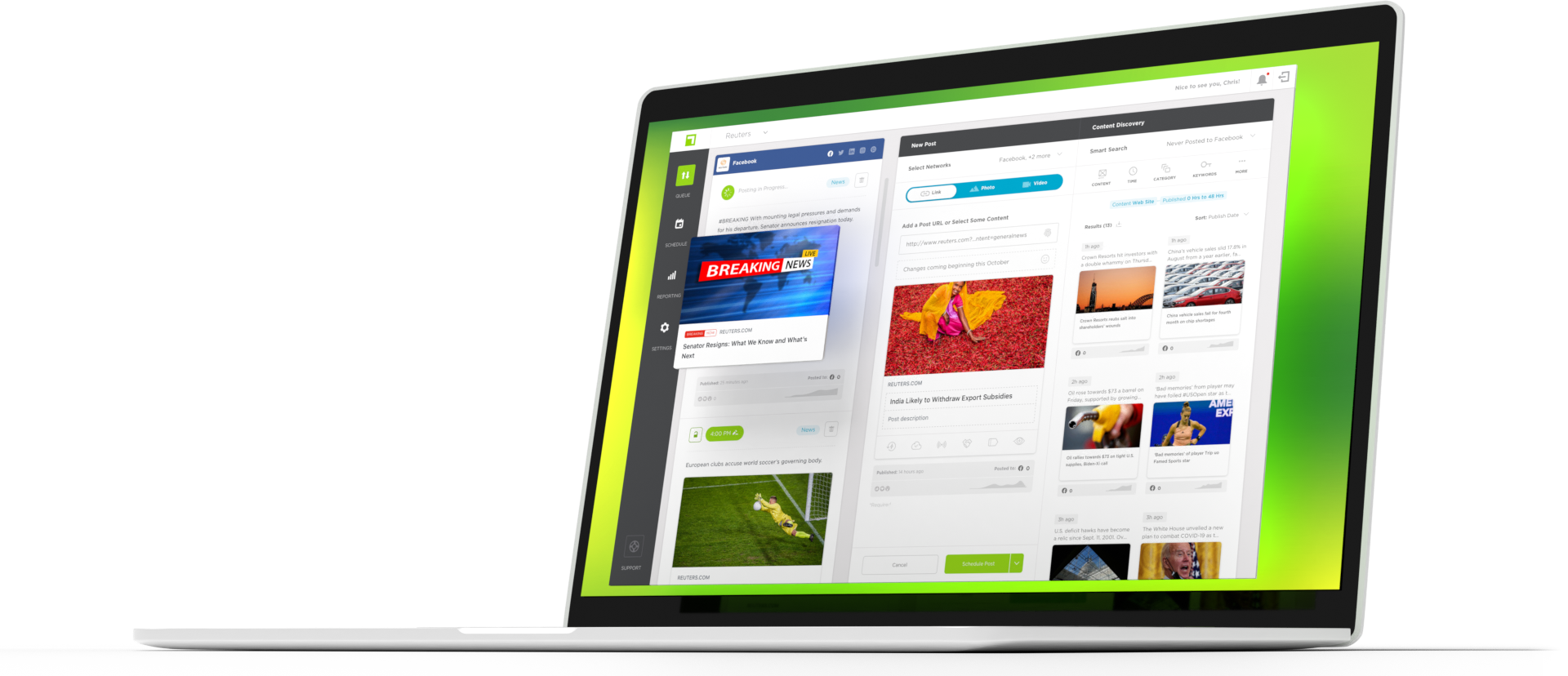For as long as True Anthem has existed, we’ve spent an excessive amount of time studying the posting patterns of publishers. Are they only publishing during work hours? Are they publishing on nights and weekends, too?
When we generate this report, we see the same pattern emerge almost universally. Publishers are posting to social less frequently, and sometimes not at all, during nights and weekends.
Publisher Facebook Posts by Hour
Publishers post during weekdays for several reasons. Most of their new content hits their website during the weekdays, and they want to distribute this content in sync with their editorial schedule while timely content is breaking. Publishers also staff their teams, including social editors, during regular business hours. And aren’t most people asleep at night? It seems logical, but it misses the point.
Off-hours posts have less competition
While readers are less active on social media overnight and into the wee hours of the morning, another noteworthy activity drops as well: competitive posting. Brands, publishers, and individuals post less frequently during nights and weekends. Fewer posts mean less content for readers’ attention. Publishers have an easier time getting insertions into Facebook users’ News Feeds. Their Tweets are more likely to be seen. Despite smaller active social audiences, publishers can have equal or more social media success than their daytime and weekday posts.
You’ll reach different audiences at different times
Publishers can also reach a different segment of their social audience during nights and weekends. The active audience during these times may be geographically or demographically distinct from a publisher’s daytime audience. Publishers shouldn’t ignore this audience. They should maintain this audience’s affinity for their brand by varying their posting times.
It allows you to post more often
In our experience, posting more often almost universally correlates to larger traffic. Larger traffic correlates to a larger social ROI.
We’re not the only ones saying this either. Facebook released data to support the theory as well.
Because less time-sensitive stories may be overlooked during the day, posting them overnight gives them a chance to succeed during off-hours. There are often hidden gems in these leftover stories, and the overall increase in post volume tends to drive more social media success.
Publishing on nights and weekends, lets publishers recirculate their best-performing content
Breaking news should go out when it happens, but what about content that stays relevant for a more extended period? We repeatedly see publishers unlock tremendous value from their content by recirculating their best-performing and trending content on social media.
Since most publishers reserve their weekday social post schedule for new content, nights and weekends are the perfect time to mix in ICYMI (in case you missed it) posts and popular evergreen stories.
By reaching different audiences, posting more frequently, and varying posting strategies, social posts during nights and weekends represent a huge opportunity for publishers. After helping publishers change their posting strategies, we’ve seen dramatic increases in engagement and traffic from social. Contact us for a demo to see how we can help you!

